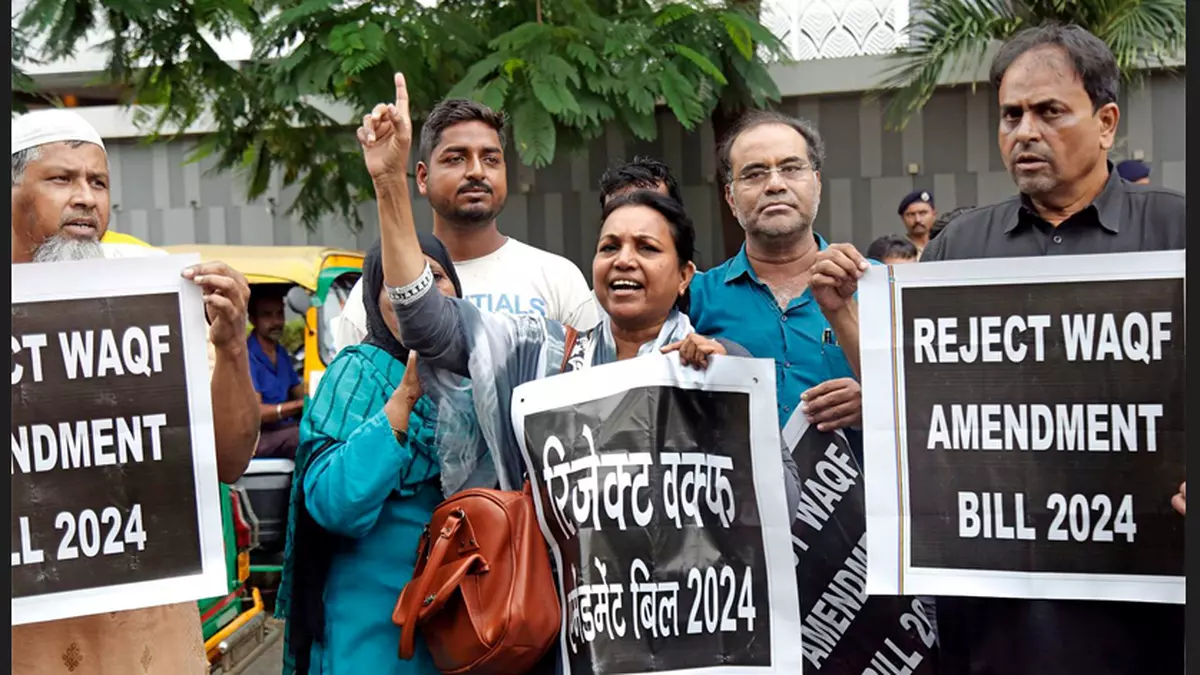
The contentious Waqf (Amendment) Bill will be taken up by the Lok Sabha for discussion and passage on April 2, setting the stage for a showdown between a government intent on pushing the bill and an opposition that condemns it as unconstitutional.
The Rajya Sabha, meanwhile, will address the bill a day later.
Ahead of the discussion, several parties including the BJP and Congress have issued whips to their MPs, asking them to ensure their presence in the House and support their party’s official stand.
As the bill is up for discussion, here’s a look at Waqf Amendment Bill, key features and why it is facing criticism —
-What is the exact meaning of Waqf?
Waqf refers to properties dedicated exclusively for religious or charitable purposes under Islamic law, and any other use or sale of the property is prohibited.
-And, what exactly is the Waqf (Amendment) Bill, 2024?
According to the government, the Amendment Bill seeks to improve the administration and management of Waqf properties in India. “It aims to overcome the shortcomings of the previous Act and enhance the efficiency of Waqf boards by introducing changes such as renaming the Act, updating the definition of Waqf, improving the registration process, and increasing the role of technology in managing Waqf records,” a statement issued by it in September last year said.
Opposition parties have vehemently opposed the bill, labeling it unconstitutional and against the welfare of the Muslim community. Several major Muslim organisations have been actively campaigning against it.
-Which administrative bodies oversee Waqf management in India, and what functions do they perform?
The administration of Waqf properties in India is presently governed by the Waqf Act, 1995, which is enacted and regulated by the Central Government. The key administrative bodies involved in Waqf management include –
1. Central Waqf Council (CWC) – Advises the government and State Waqf Boards on policy but does not directly control Waqf properties.
2. State Waqf Boards (SWBs) – Manage and protect Waqf properties in each state.
3. Waqf Tribunals – Exclusive judicial bodies that handle disputes related to Waqf properties.
-Why there has been an uproar over the Waqf Amendment Bill?
One of the key contentious provisions in the Bill include tweaks to the composition of the Central Waqf Council and state Waqf boards, mandating the inclusion of non-Muslim members. Secondly, granting a senior state government official the authority to decide whether a disputed property belongs to Waqf or the government. In its original form before JPC scrutiny, the 2024 bill had designated the District Collector as the final authority.
Some other provisions that have drawn criticism are eliminating the “Waqf by user” clause, requiring all Waqf properties to be registered in a central database within six months of the law’s implementation, and removing the finality of tribunal decisions.



